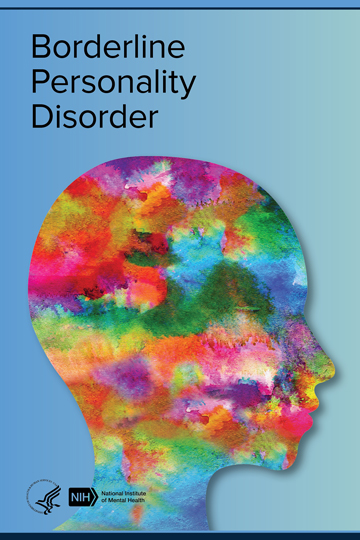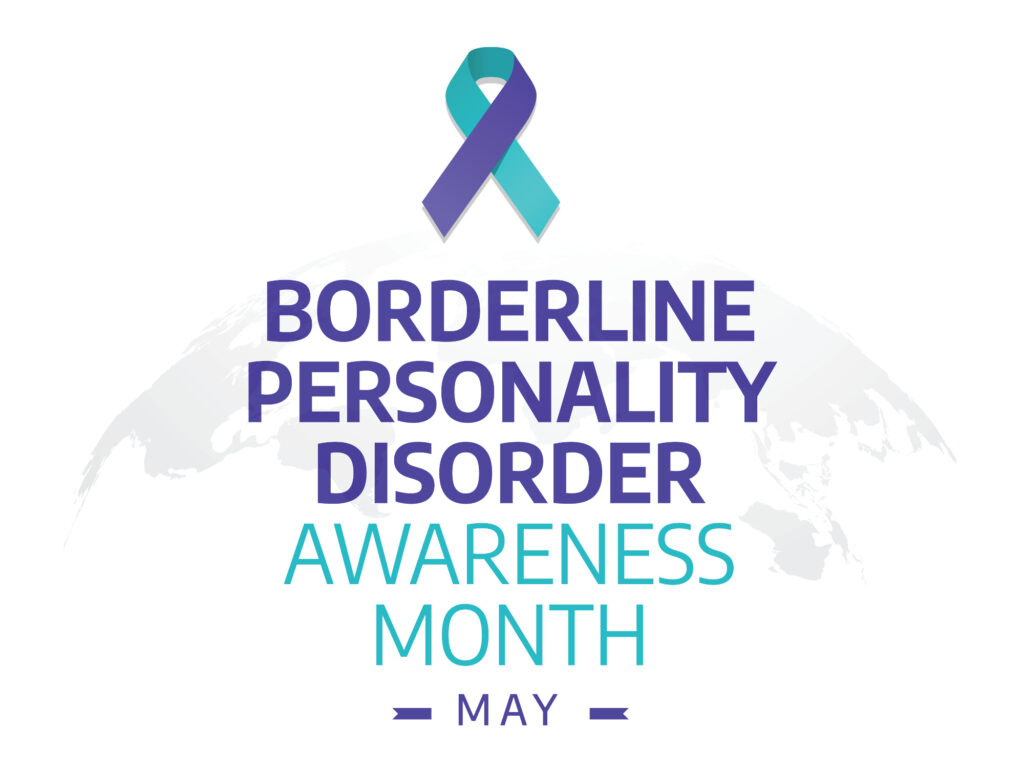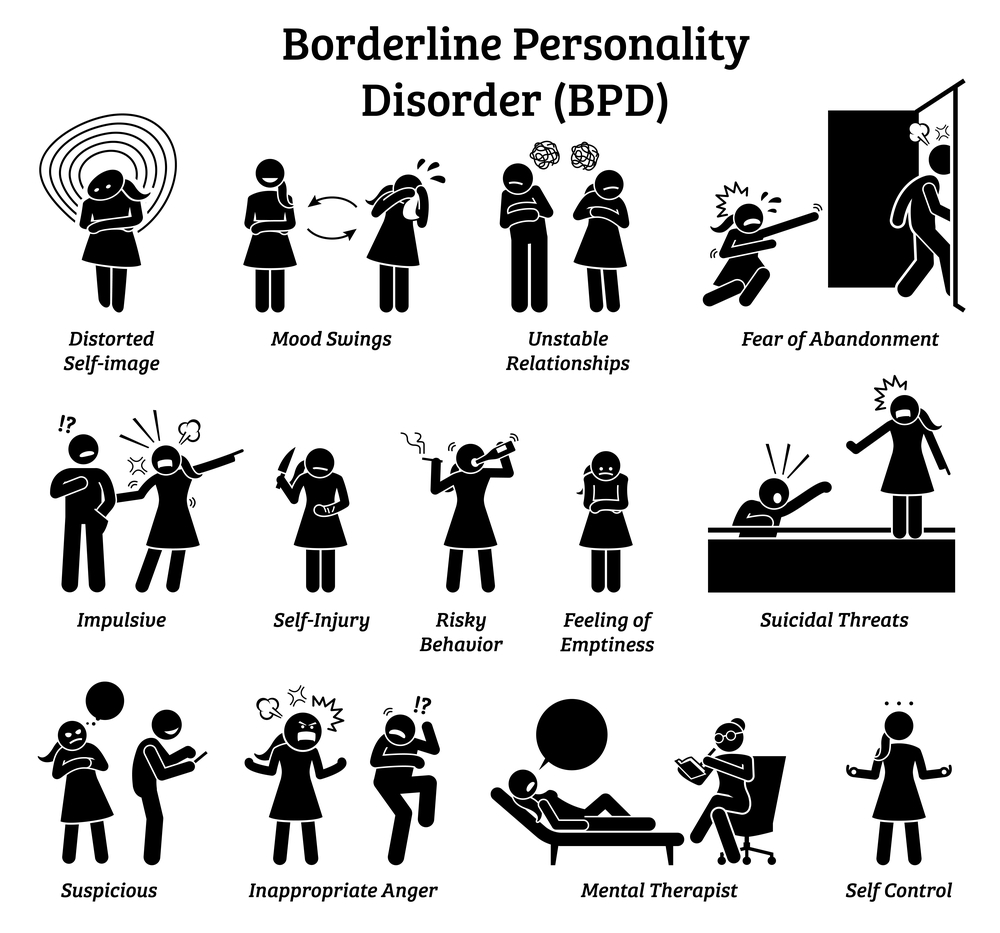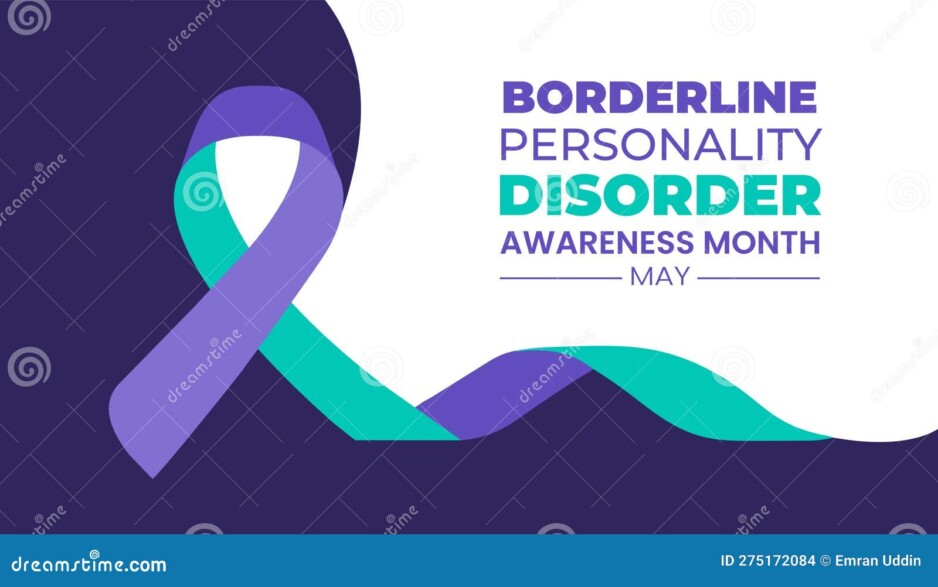Understanding Borderline Personality Disorder (BPD)
What is Borderline Personality Disorder?
Borderline Personality Disorder (BPD) is a mental health condition characterized by unstable moods, behavior, and relationships. Individuals with BPD often experience intense emotions, have difficulty regulating their emotions, and exhibit impulsive behaviors.
Signs and Symptoms of BPD
Signs and symptoms of BPD may include fear of abandonment, unstable relationships, identity disturbance, impulsivity, intense mood swings, chronic feelings of emptiness, and self-harming behaviors.
:max_bytes(150000):strip_icc()/is-borderline-personality-disorder-genetic-5191970-FINAL-97f7ba76c24942d4b589b41d8c4ced2d.jpg)
Causes and Risk Factors of Borderline Personality Disorder
Genetic predispositions
BPD can be influenced by genetic predispositions, meaning individuals with a family history of the disorder may have a higher risk of developing it. Certain genetic factors may play a role in the development of BPD.
Environmental factors
Environmental factors, such as childhood trauma, neglect, or abuse, can also contribute to the development of Borderline Personality Disorder. These experiences can impact emotional regulation and interpersonal relationships, increasing the risk of BPD.

Diagnosis and Treatment Options for Borderline Personality Disorder
How BPD is diagnosed
BPD is typically diagnosed through a thorough psychiatric evaluation, where symptoms, medical history, and family history are assessed. Mental health professionals may use DSM-5 criteria to make a diagnosis, considering factors like impulsivity, unstable relationships, and identity disturbances.
Therapy and medication options
Treatment for BPD often involves psychotherapy, such as dialectical behavior therapy (DBT) or cognitive-behavioral therapy (CBT). Medications like antidepressants may be prescribed to manage symptoms like depression and anxiety.

Support Systems for Individuals with Borderline Personality Disorder
Importance of a strong support system
Individuals with Borderline Personality Disorder benefit greatly from having a strong support system in place. It can provide emotional stability, understanding, and encouragement throughout their treatment journey.
Ways to support a loved one with BPD
Supporting a loved one with BPD involves active listening, empathy, and being patient. Encouraging them to attend therapy sessions and learn coping mechanisms is crucial for their well-being.

BPD Awareness Month: History and Significance
Origins of BPD Awareness Month
The initiative of Borderline Personality Disorder (BPD) Awareness Month began with the aim to educate and raise awareness about this mental health condition. It serves as a platform to promote understanding and support for individuals living with BPD.
Global initiatives and campaigns
Around the world, various organizations and mental health advocates participate in global initiatives and campaigns during BPD Awareness Month. These efforts strive to reduce stigma, offer resources, and foster a compassionate environment for individuals affected by BPD.

Breaking Stigma and Misconceptions Surrounding Borderline Personality Disorder
Common myths about BPD
Borderline Personality Disorder (BPD) is often surrounded by numerous misconceptions. These misconceptions can lead to stigma and misunderstanding of the condition.
The reality of living with BPD
Living with BPD can be challenging, but with the right support and understanding, individuals can lead fulfilling lives. Awareness initiatives are crucial in providing education and resources for those affected by BPD.

Self-Care Tips for Individuals with Borderline Personality Disorder
Managing emotional dysregulation
Individuals with BPD can benefit from practicing techniques like deep breathing and progressive muscle relaxation to manage emotional intensity. Seeking therapy, such as Dialectical Behavior Therapy (DBT), can also provide tools to navigate intense emotions effectively.
Practicing mindfulness and self-compassion
Engaging in mindfulness exercises and self-compassion practices can help individuals with BPD stay grounded and cope with challenging emotions. Being kind to oneself and practicing self-care routines are essential components of managing BPD symptoms.

Conclusion
Recap of key takeaways
Individuals with BPD can benefit from managing emotional dysregulation through techniques like deep breathing and therapy such as DBT. Engaging in mindfulness practices and showing self-compassion are crucial for coping with challenging emotions. Self-care routines and staying grounded help in effectively managing BPD symptoms.

